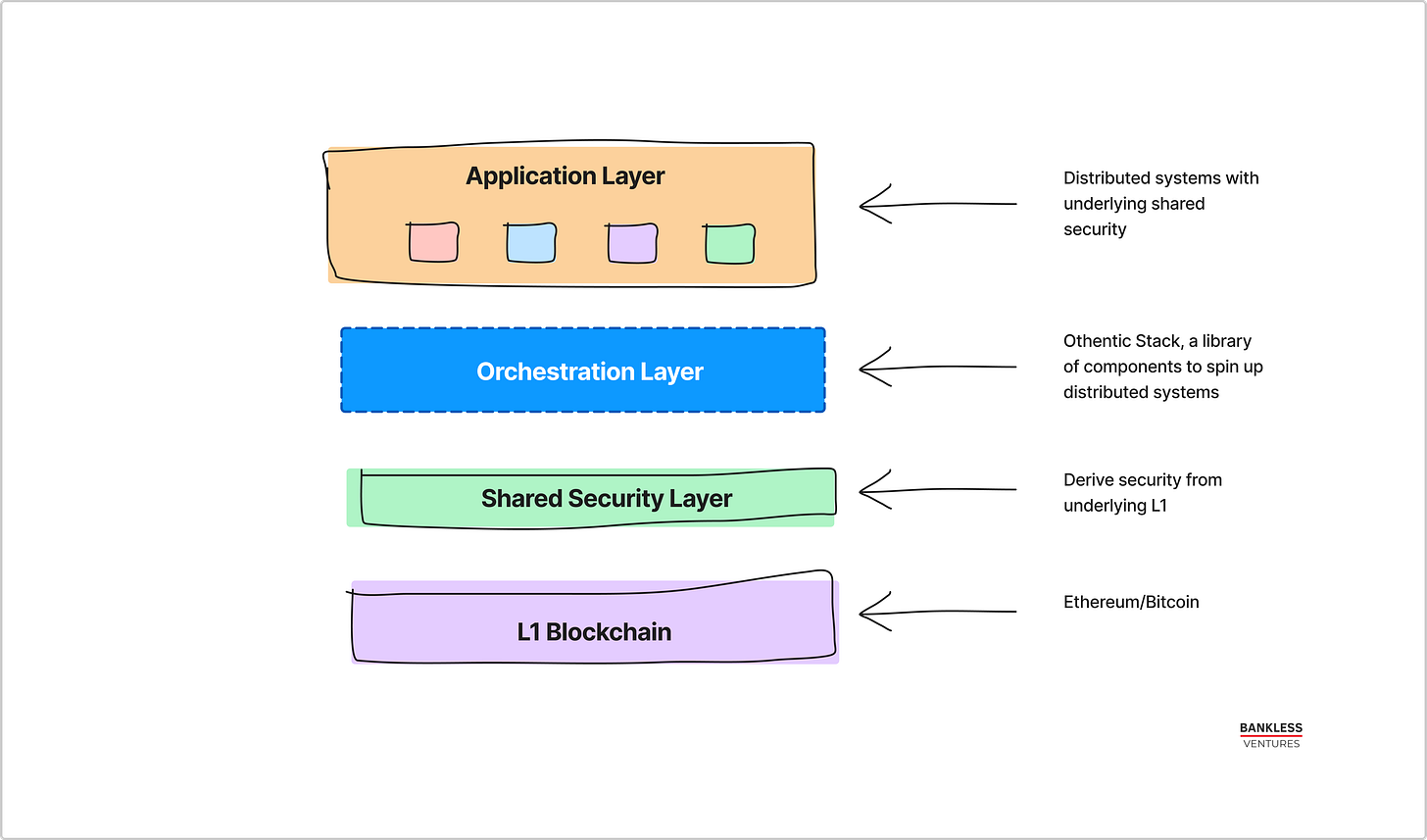Othentic: Accelerating shared security networks
Othentic Stack is a library of components to build distributed systems in the shared security environment.
TL;DR:
EigenLayer offers services to leverage Ethereum's economic security
Complex low-level development is required for services with shared security
The Othentic Stack enables the creation of novel computational services, abstracts away development barriers, and minimizes engineering overheads
Developer bottlenecks
EigenLayer has been a major unlock for the ecosystem, providing the ability to extend security across various systems using smart contracts.
While EigenLayer provides the baseline smart contracts to derive security from Ethereum, AVS developers are responsible for:
customizing a system that interacts with the EigenLayer framework and
developing critical core components that fit the new shared security economy.
In the new shared security economy, node clients are continuously evolving, and Operators must execute diverse onchain and off-chain computation work that represents the AVS unique service.
AVS developers need to deploy their core service atop a trustless execution environment, spin up a network of Operators that run their unique node software, reach on-chain agreements on arbitrary computational tasks, distribute rewards, and enforce penalties and slashing based on the Operators' attestations.
All this creates a bottleneck for developers as they onboard into the Eigen ecosystem.
Introducing Othentic
The Othentic Stack is a self-deploy infrastructure to spin up distributed systems with shared security, with a mission to facilitate the creation of novel computing services.
Leveraging a library of production-ready and configurable components, AVS developers can focus on their core service, minimize engineering overheads, and abstract away low-level implementations and error-prone infrastructure details.
Stateless Rollups
Othentic introduces a framework for Stateless Rollup, allowing AVS developers to self-deploy:
Custom computational services over trustless execution environments and
A network of Operators that run arbitrary compute tasks.
Stateless Rollups are:
Computing services that provide services to other networks or applications
Decentralized networks that run their own validator set and are compatible with any EVM or non-EVM blockchains
Stateless Rollups such as oracles, coprocessors, bridges, relayer networks, decentralized RPCs, ZK provers, exploit prevention systems, privacy-preserving computations, decentralized auth systems, AI inferences, composable data networks, decentralized solvers, and MEV Auction, provide services to other protocols without being constrained by any particular blockchain.
Othentic Task Consensus
AVS’s operation can be broken down into units called “Task.” Each Task represents a unit of work to be carried out by the Operators. One of the primary goals of Othentic is to support diverse node tasks and enable AVSs to submit unique task specifications.Othentic Task Consensus is a scheme to execute, validate, and approve any given task.
Powered by a modular consensus engine, the Othentic Task Consensus allows the execution and validation of any computation use case.
The consensus algorithm leverages the leader election mechanism, a process for a quorum of nodes to make claims about the execution of a Task by the executing node. These claims are cryptographically signed to ensure the authenticity and immutability of task execution.
This structure allows AVS Operators to execute customizable services, providing a foundation for a wide range of applications.
Conclusion
The Othentic Stack is an ever-evolving system. As work on the Stack continues, novel modules will be integrated and become available for developers to plug in and configure. Developers can gain early access by signing up here.
We are thrilled to be supporting the team behind Othentic and are excited about the future of shared security. To learn more about Othentic check out their website or follow along on X/twitter for updates.



